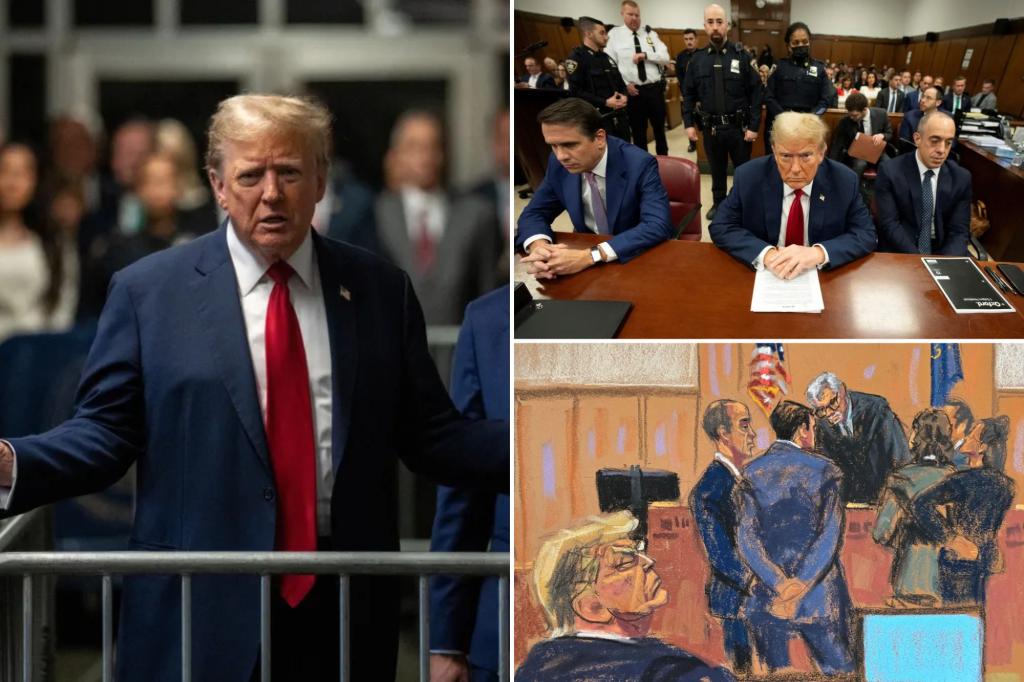As the hush money trial involving former President Donald Trump reaches its conclusion, his legal team must decide whether or not to ask the jury to consider misdemeanor charges in addition to the felony charges he is facing. This decision must be made during the charge conference that precedes closing arguments, where they can request what is known as a lesser included offense (LIO) to have the jury weigh 34 misdemeanor counts of falsifying business records instead of the 34 felony counts the prosecutors have alleged.
According to former judge Ethan Greenberg, a LIO is a less serious crime that carries lower penalties and is included within the definition of a more serious crime that the defendant is accused of. The main reason Trump’s team might consider requesting the LIO is because of the far-lighter sentencing guidelines attached to the misdemeanor charges. The felony charges of falsifying business records carry up to four years of prison time, while the misdemeanor charges would result in two years behind bars.
However, it would be a risky move for Trump’s team to submit an LIO, as it could also be requested by the prosecution and at the discretion of Manhattan Supreme Court Justice Juan Merchan. If both sides and the judge decide to only consider the felony counts and the jury finds Trump guilty of deliberately falsifying records but not to cover up a crime as alleged by the prosecutors, then the former president would be acquitted. On the other hand, with the LIO, Trump would be convicted if the jury finds that he intentionally falsified business records.
The prosecutors have charged that the hush money payment to porn star Stormy Daniels was a part of an illegal scheme by Trump to influence the 2016 election by hiding a damaging sex scandal from voters. Another downside to Trump’s camp asking for the LIO would be a more difficult path to appeal in case of a conviction on the misdemeanor charges. Greenberg explains that there is a substantial body of case law in New York that holds that if a defendant requests a lesser included offense to be submitted and is then convicted of that offense, the defendant waives the right to challenge the legal sufficiency of the evidence supporting that lesser charge on appeal.













